May 15, 2025 | 05:48 GMT +7
May 15, 2025 | 05:48 GMT +7
Hotline: 0913.378.918
May 15, 2025 | 05:48 GMT +7
Hotline: 0913.378.918
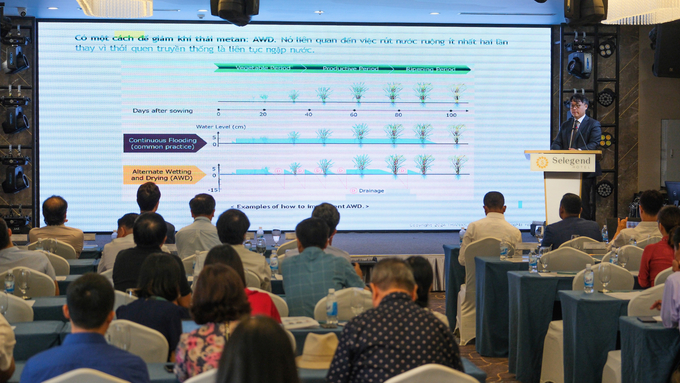
The International Workshop on "Reducing methane emissions in rice cultivation using AI-based satellite and Gold Standard consultation in the Red River Delta" was organized on July 3 in Thai Binh. Photo: Quynh Chi.
The International Workshop on "Reducing methane emissions in rice cultivation using AI-based satellite and Gold Standard consultation in the Red River Delta" was organized on July 3 in Thai Binh. The workshop was a collaboration between the Institute for Agricultural Environment (IAE) under the Vietnam Academy of Agricultural Sciences and the Korean Thanks Carbon Company.
Recently, IAE and Thanks Carbon have worked together to develop a model for rice farming using AWD techniques. They have also refined and validated satellite image processing methods to determine water levels in rice fields accurately. This information is crucial for calculating and maintaining an inventory of greenhouse gas emissions. In addition, the organizations also conducted research on providing carbon certification to rice farmers and organizers who have low carbon emissions. They also supported people, firms, and corporations involved in low-emission rice production to participate in carbon credit trading activities.
In line with Vietnam's focus on promoting green growth and reducing emissions in the agriculture and rural development sector, Thanks Carbon has conducted research and created an AWD system as well as a Measure-Report-Verify tool. The Thanks Carbon's technology incorporates artificial intelligence-based satellite technology and the Gold Standard system.
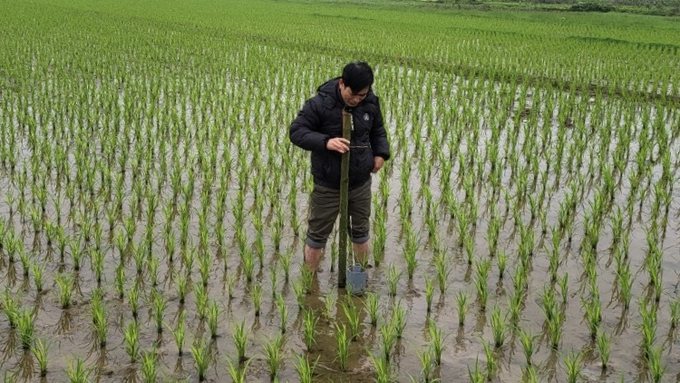
Thai Binh Irrigation and Drainage staff practice taking photos, recording data, and uploading to the AWD monitoring system. Photo: Documents.
Tyger Lee, the Technology Director of Thanks Carbon, stated that although the AWD approach has offered benefits, there remain obstacles in implementing and certifying carbon credits. Many farmers are still unclear on how to implement AWD techniques and are hesitant to modify their agriculture practices. Furthermore, the certification of carbon credits necessitates a rigorous and complex verification procedure that leads to confusion among farmers.
To address these issues, Thanks Carbon has created two cutting-edge technologies. The first application is Haimdall, a digital agricultural diary software designed to eliminate the need for manual note-taking by farmers. This app reduces the likelihood of encountering difficulties and enhances the transparency of data. The application also provides suggestions regarding the optimal timing for AWD, assisting farmers in adhering to regulations seamlessly.
The utilization of satellite images with artificial intelligence (AI) enables the determination of water levels in rice fields through the analysis of light reflections, eliminating the need for manual measurements. The company facilitates data collecting for farmers and incorporates fields into group administration, hence reducing the need for labor forces.
Agriculturists and fishery workers are responsible for overseeing farmers and managing a larger region, while also reducing data-gathering efforts by grouping together similar areas with AWD irrigation techniques.
Specifically, Thanks Carbon collaborated with IAE to carry out a pilot project on 67 hectares of rice fields in the Agricultural Service Cooperative in Phu Luong commune, Thai Binh. This project included the involvement of over 800 farming households.
Initially, the unit responsible for carrying out the pilot project did a survey of the on-site irrigation infrastructure in the area and divided the fields for farmers in the cooperative into 61 sections. Next, farmers received training on AWD procedures. Specifically, a group of 7 agriculturists and fishery staff members underwent training to effectively implement the Heimdall method.
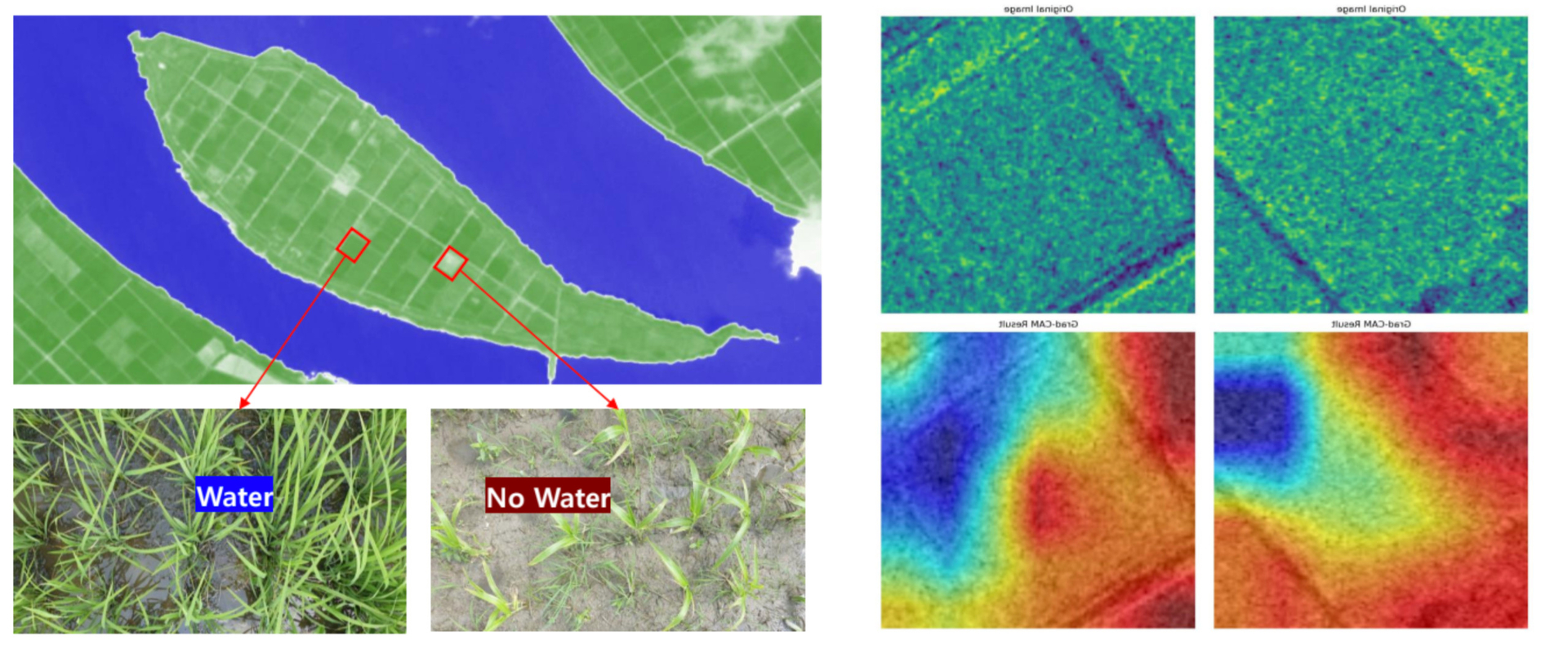
Analyze satellite images with AI to determine the time fields are flooded and drained, increasing the transparency of the farming process to reduce emissions. Photo: Thanks Carbon.
Throughout the project's implementation, the crew acquired a total of 50 satellite photos and over 3,500 on-site images. The Heimdall application was used to collect data on the history of water management, fertilizer use, pesticide use, and yield for each point. These methods are crucial for acquiring Gold Standard carbon credit certification.
The team carried out 26 sessions of high-resolution SAR satellite imaging at 61 locations, analyzing a total of 1,586 distinct cases. Discounting any variations caused by rainfall or local problems, the system attained a maximum accuracy of 90% and demonstrated the ability to differentiate with precision up to 97%. The obtained result in South Korea, which is 87.5%, is lower than this result.
According to Mr. Tyger Lee, Thanks Carbon has successfully resolved the difficulties associated with implementing AWD irrigation technology through the use of modern technologies. The submersion of water over five days significantly inhibits weed growth, providing reassurance and building confidence among farmers in the adoption of the AWD approach.
The project's economic advantages to the local area are evidenced by the outcomes of the spring rice harvest in 2024. Mr. Nguyen Trong Thanh, the Director of the Phu Luong Agricultural Service Cooperative, enthusiastically reported that implementing the Alternate Wetting and Drying (AWD) technique has resulted in a approximately 2% increase in rice yield compared to the control group. This style of rice cultivation yields robust plants, with panicles that are both large and elongated, resulting in a high proportion of fully developed grains. More precisely, the rice production achieved a yield of 7.3 tons per hectare, but the control group only achieved a yield of 7.15 tons per hectare.

Production using the alternating wet and dry irrigation method helps rice yield to be 10 - 15% higher than the control. Photo: Tung Dinh.
Furthermore, the expenses associated with power for pumping and irrigation work were greatly diminished as a result of the fourfold decrease in water absorption per crop. The cost of each water uptake is around 3 million VND, which is equivalent to a savings of 12 million VND over an area of 67 hectares. The implementation of the AWD approach resulted in a decrease in pesticide application, hence enhancing the overall health of the soil and crops.
In addition to enhancing economic efficiency, farmers in the project region underwent training, resulting in a substantial increase in their awareness. They refuse to accept plastic waste in the fields, so contributing to a more hygienic production environment.
According to Mr. Thanh, the government's policy to decrease methane emissions in rice production as part of green growth is a highly appropriate measure to promote sustainable and eco-friendly development in Vietnam's rice industry. This is an excellent chance to reorganize rice cultivation during the process of global integration, with a focus on creating environmentally friendly agricultural goods and minimizing greenhouse gas emissions, which is an unavoidable tendency.
Farmers have a crucial part in determining the success of the enterprise. Thus, it is imperative to disseminate extensive propaganda across all levels, sectors, and the entire political system, ranging from central to local, in order to actively motivate farmers to alter their perceptions and farming practices towards sustainable production.
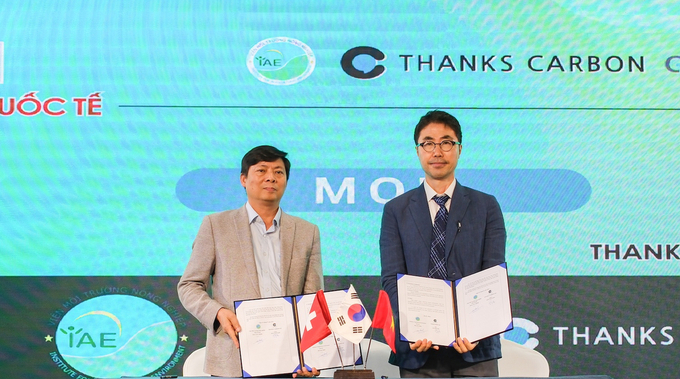
The Institute of Agricultural Environment and Thanks Carbon Company signed a memorandum of cooperation to continue implementing the AWD MRV model in the Mekong Delta. Photo: Quynh Chi.
To expand carbon emission reduction production models, the Director of Phu Luong Cooperative suggested that each locality should have a model, initially implemented from 5-10 hectares. After each harvest, experience in organizing implementation should be drawn, maintaining effective steps and overcoming those that do not meet requirements. Thus, the model will be expanded for farmers to learn and apply.
Translated by Linh Linh
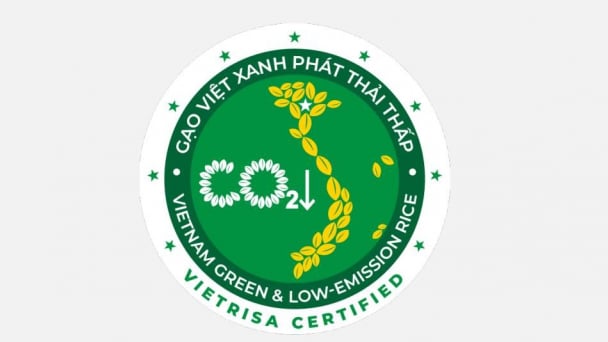
(VAN) The launch of the Vietnam green and low-emission rice brand is a positive signal for both businesses and farmers, marking readiness to reach new heights in the global market.

(VAN) The U.S. tariff will have a significant impact on Vietnam’s wood industry as well as the U.S. furniture market. A reasonable tariff rate would be beneficial for both sides.
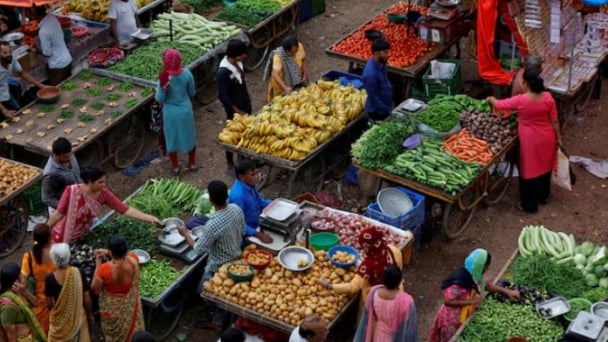
(VAN) India's retail inflation remained below the central bank's 4% target for the third consecutive month as food prices rose at a slower pace, opening up room for more interest rate cuts.
![Multi-channel, multi-directional Vietnamese agricultural markets: [5] Safety is the key](https://t.ex-cdn.com/nongnghiepmoitruong.vn/608w/files/linhnhp/2025/05/13/trai-cay-viet-nam-170345_133-221148-0908330.jpg)
(VAN) The Middle Eastern market presents new opportunities for Vietnamese agricultural products, but safety in product quality, payment, and partnership relations is a fundamental principle.
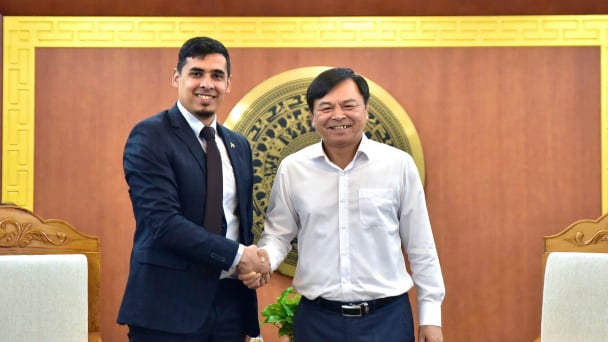
(VAN) Vietnam's participation in the AGROALBA project helps open up broader investment opportunities for enterprises to access markets in the fields of agriculture.
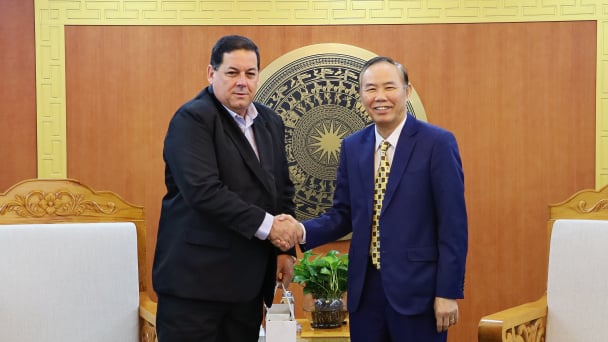
(VAN) On May 13, Deputy Minister of Agriculture and Environment Phung Duc Tien held a meeting with Cuban Deputy Minister of the Food Industry Javier Francisco Agular Rodriguez.
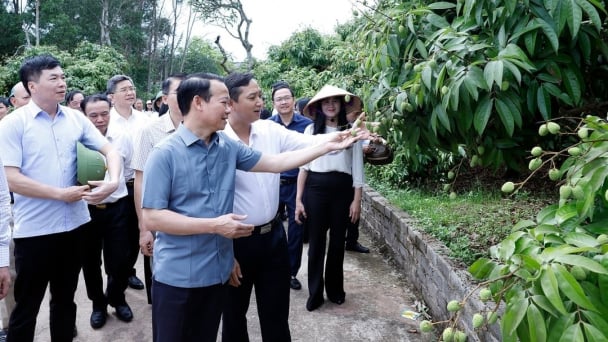
(VAN) Agriculture and environment sector experienced a 3.74% increase in growth during the first four months of 2025, with exports surpassing 21 billion USD. This growth was sustained by effective reforms and a trade surplus.